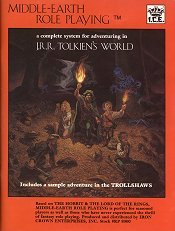Or in more succinct terms, “crunch” is the collective amount of bookkeeping, math, tactics and option-weighing, and rules consulting that players and gamemasters need to do. Very ‘crunchy’ games can be quite tedious when it comes to combat or other rules-heavy conflicts, and have a steep learning curve for new players, and may also require a lot of interpretation where rules are unclear. Runequest (especially the third edition, as well as the Design Mechanism editions which then spun out as Mythras) was very crunchy when it comes to combat because it has hit points and armor values per hit location, fatigue, encumbrance, special effects and battle tactics, et cetera (almost none of which actually matters very much because it is rare for a combat to go beyond three rounds where one party either surrenders or is killed.)
Dungeons & Dragons isn’t so much ‘crunchy’ as it is just full of ad hoc and arbitrary rules, largely intended to create an artificial ‘balance’ of character classes and the threats that characters face. Stripped down to “Old School Renaissance” (OSR)-style basic elements (essentially, the pre-“Advanced” game mechanics), it’s actually very simple.
Stranger
